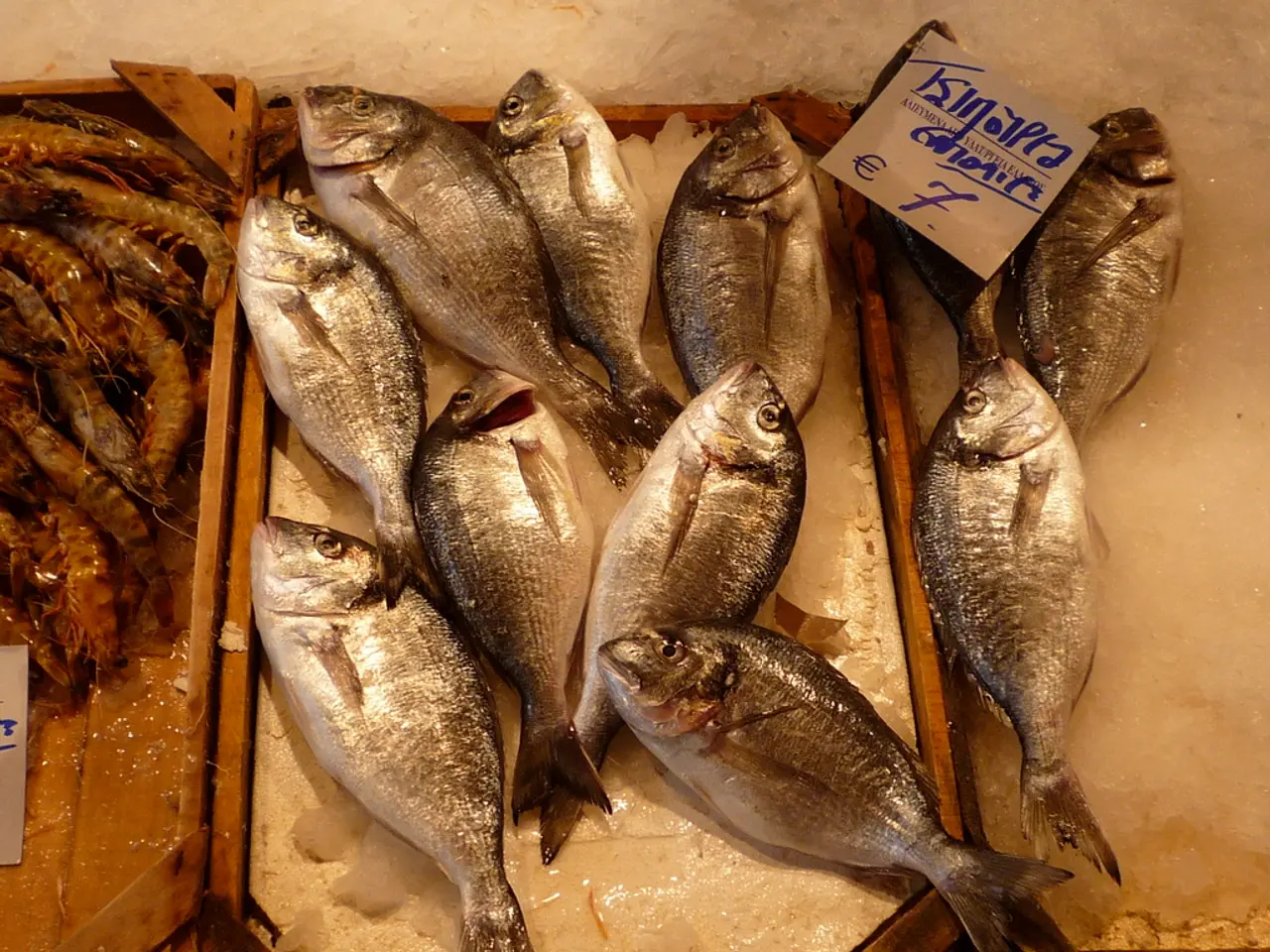Pakistan intends to boost seafood exports by $600 million through strategic partnerships with China, and by strengthening its aquaculture sector.
Pakistan's seafood industry is set for significant growth, with a focus on technology transfer, investment, and aquaculture expertise from Chinese partners. This collaboration is expected to reduce costs, gain economies of scale, and broaden export reach to markets such as the US, Europe, and regional markets.
Recent talks in Beijing between officials and exporters aim to scale up aquaculture and frozen food ventures. One of the key initiatives is the establishment of a $12 million fishmeal processing plant at Gwadar Port by the Chinese company MAYCOM Group and Pakistan's TECNO Group. This plant will process fresh fish into feed-grade fishmeal and fish oil for aquaculture markets, supporting the survival of live seafood and crabs for export to distant markets, including China.
The partnership also includes investing in aquaculture research and EU-certified fish processing facilities to boost seafood exports. New memorandums of understanding and business-to-business deals with Chinese companies are central to lifting production and establishing Pakistan as a regional seafood hub.
Pakistani companies are also proposing joint ventures to expand beyond seafood. Saeed Ahmed Fareed, CEO of Legend International (Pvt) Ltd, seeks Chinese collaboration for value-added frozen seafood and poultry products, specifically chicken feet.
Pakistan ranks as the third-largest global exporter of mud crabs, shipping over 3,000 tons of live mud crabs to China each year. Federal Maritime Affairs Minister Junaid Anwar Chaudhry stated that the country aims to extend the survival time of live seafood to two or three weeks, enabling access to distant markets such as China.
The fisheries sector earned $465 million in the financial year 2024-25, and Pakistan has set a seafood export target of $600 million for the financial year 2025-26. To achieve this goal, the industry is looking at promising potential for growth in the freeze-drying sector in the near future.
Exporters are highlighting the untapped potential of freeze-drying technology for fruit and vegetable exports. Tariq Memon, international sales manager at Arabian Sea Products, is developing holding systems to cultivate and preserve live mud crabs and lobsters in partnership with Chinese firms. Asif Muhammad Ali Shah, director of Perfect Food Industries, notes a lack of freeze-drying facilities in Pakistan despite strong international demand for certain fruits and vegetables.
Legend International (Pvt) Ltd, which operates a 65,000-square-foot processing facility with a daily capacity of 40 tons, is already approved by China's General Administration of Customs (GACC). Ali Reimoo of Karim Impex is exploring opportunities in China and neighboring regions.
International buyers are ready to commit to annual contracts if local capacity for freeze-drying is built, particularly for diaspora communities and niche markets abroad. This initiative not only aims to strengthen bilateral trade but also to boost Pakistan's position as a global player in the seafood industry.
Read also:
- Unfortunate Financial Disarray for a Family from California After an Expensive Emergency Room Visit with Their Burned Infant
- Impact, Prevention, and Aid for Psoriatic Arthritis During Flu Season
- Indian expatriates from Kerala in the United Arab Emirates experience a rare double celebration in 2025, as the Thiruvonam festival of Onam coincides with a public holiday.
- Heavy Rain in Delhi Causes Yamuna Flooding, Impacting DMRC's Access to Yamuna Bank Metro Station - Current Information








